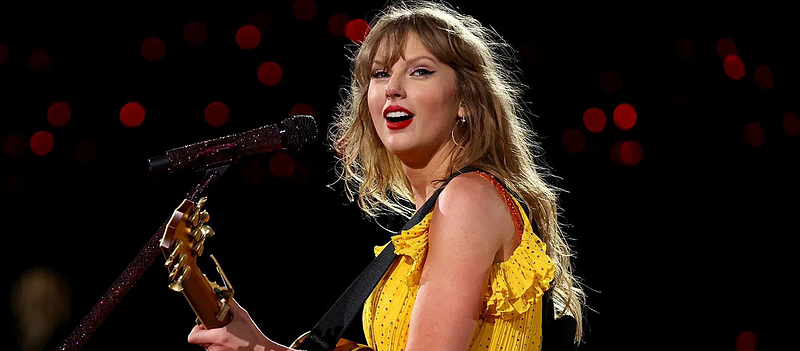
Taylor Swift is an icon; an economy in herself; a leader of an undeniable militia of fans. However, Swift is not influential.
Taking a look at the newly-coined field of ‘Swiftonomics,’ which has estimated that Swift’s recent Eras Tour provided the national economy with about $5 billion in consumer expenditures (via TIME), I may seem like a shallow hater that is trying to puncture the impenetrable acclaim of the singer. While I am by no means a Swiftie, there are definitely formidable classics in her discography that I can even appreciate, and I certainly respect the strength of her single-handed dynasty. But there are certain indicators of widespread cultural impact that Swift’s insulated fandom does not demonstrate.
Madonna, although a superstar in her own right, did not have the same extent of blockbuster appeal as Swift in her heyday, but she invited lasting changes in how female solo vocalists could embrace and express their sexuality and gender. N.W.A, and the subsequent solo acts of Dr. Dre and Eazy-E, are now referred to as legends, but their influence exceeded their mass appeal at their genesis; they spawned a whole new era of ‘gangsta-rap’ and normalized language and speech that was once taboo in music. Even MF DOOM, a rapper whose popularity skyrocketed only following his death in 2021, has a full multi-genre tree of indirect disciples, who have explicitly acknowledged the influence of his work and presentation (i.e. Earl Sweatshirt, Thom Yorke, The Weeknd).
What has Swift spawned as a result of her own creative innovations? Some may point to an album like folklore (2020) as inspiration for a rise in singer-songwriter balladists like Noah Kahan, but much of the album is a reimagined stylistic rendition of the works of Joni Mitchell and even contemporaries like Phoebe Bridgers and Bon Iver (who are both featured on separate Swift songs). This album is a particularly apt example of how Swift maintains a facade of sonic growth, when in reality, she invites peers adjacent to her musical space to work with her, but inevitably outshines them and can inadvertently be given credit for their idiosyncrasies.
With fashion, Swift’s lack of influence is even more apparent. Say what you will about friendship bracelets, but many of the “fashion trends” that Swift starts are either extremely internal ones within her fanbase, or simply do not spread into the mainstream.
Rather, it’s more appropriate to look at Swift as the leader of a political party that can influence those already committed to existing movements, or in this case, Swift’s music and that of her peers. More than half of Swift’s fans listen to fellow pop-stars like Lady Gaga and Adele, further showing how Swift’s musical appeal is a result of pop subgenres that bleed into each other (via YouGov). Additionally, Swift’s fanbase is dominated by millennials (45% in the U.S according to Australian Broadcasting Corporation), or adults that are young enough to be into her music, while having the financial autonomy to dump extra money into expressions of their fandom. This takes shape in how over half of her fans prefer physical versions of music rather than streaming, which fits nicely into the business strategy behind Swift’s relentless vinyl and CD releases (via YouGov).
My argument is not that Swift is not as popular as people say she is, but that she does not wield the same creative influence that previous acts with a similar stature to her have. This is also intensified by how little Swift uses her unparalleled platform to speak about topics that stray away from her career and music. In 2020, an inflection point in American political history, Swift gave a soft endorsement of the Joe Biden-Kamala Harris presidential campaign by approving the use of one of her songs at rallies. The only time Swift has taken a real political stance was when she endorsed Democrats in the 2018 midterm elections in Tennessee. For someone who has claimed in her self-orchestrated film Miss Americana (2020) that she “wanted to be on the right side of history,” she has stayed virtually mute in almost every hot topic of socio-political debate.
None of this is to say that Swift has some grand duty to America or the world to speak out on every issue that concerns society, but it emphasizes the bubble that she lives in as an artist, rarely willing to rock the boat for something greater than her own prosperity or that could ostracize her passionate fanbase. But The Tortured Poets Department (2024) is projected to sell over 2 million copies in its first week out, so who am I to evaluate how she handles her image?
















